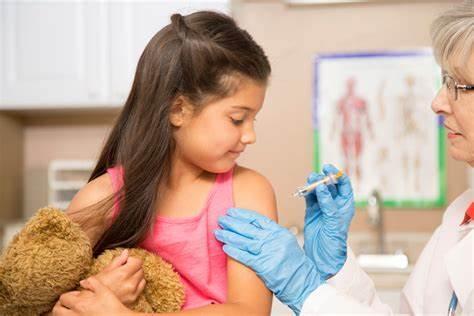
Allergies and Asthma are Bigger Summer Camp Challenges than Homesickness

Santa Monica, CA-
The biggest worry for some kids as they head off to summer camp is whether their IPad will get a connection in the North Woods. Others have far graver concerns, including nasal allergies, asthma and food allergies. Parents of kids with these conditions have to do homework to determine the best camp fit for their child. The goal is to keep kids safe while allowing them to have fun and create memories.
“Finding the right camp for your child with allergies or asthma can seem daunting, depending on how serious their symptoms are,” says allergist Dr. Bernard Geller, Allergy & Clinical Immunology Medical Group. “The good news is more camps understand what is involved with keeping a child with allergies or asthma safe and making sure they have the right protections in place. It’s important to be specific about your child’s needs and to search for a camp that’s a good fit.”
Following are some guidelines from the American College of Allergy, Asthma and Immunology for finding the right summer camp for your child with allergies or asthma.
All hands on deck – Whether your child is attending day camp or sleepaway camp, a key component to keeping them safe is ensuring staff is knowledgeable on handling potential medical emergencies. It’s not enough for the camp director to understand how to store and use an epinephrine auto injector, or an asthma inhaler. The staff needs to be trained in what to do when a severe allergic reaction or asthma emergency occurs, and how to help a child properly use their devices. They also need to know when to call 911, and also where the nearest hospital is, and the quickest route there.
Send along more than clean undies – If your child uses medications for their nasal allergies or asthma, or if they carry an epinephrine auto injector for severe allergic reactions, visit the allergist before they leave. Make sure their prescriptions are the appropriate dose for their height and weight, and are up-to-date. Then send along a sufficient supply of their medications, and a spare. Double-check expiration dates on existing supplies.
Go ahead and mess with the mess hall – Food is a big part of any camp experience, particularly sleepaway camp. If your child has a food allergy, communicate with the kitchen staff to make sure no areas exist where cross contamination can occur. Find out how the camp communicates and monitors food allergy information and determine whether that works for you and your child. If your child will be attending day camp, sending a bag lunch is probably best as you can guarantee he or she will be eating safe foods. Remind them that eating other kids’ food isn’t ok.
“Going to camp to make new friends and have fun is something kids enjoy and remember for many years,” says Dr. Geller. “But more importantly for kids with asthma and allergies, going to camp can provide an opportunity to spread their wings and have some independence. It’s a way to prove to themselves, and to you, they’re capable of handling their health challenges on their own.”
All children with asthma or allergies who go to camp need an emergency health plan in place with the head of the camp, with the camp medical personnel and with their counselor. For more information about treatment of severe allergic reactions and asthma, visit our website at www.SneezeWheeze.com, or reach us by telephone: (310)828-8534 or by e-mail: FrontOffice@allergyandclinical.com
Dora Afrahim, MPAP, PA-C
Allergy & Clinical Immunology Medical Group
You Might Also Enjoy...


FDA Approves the First Peanut Allergy Treatment

Telehealth: The Advantages of Telemedicine

Four Tips to Help you Stay Calm and Ease Sniffling, Sneezing, & Wheezing this Holiday Season

Keeping Allergies and Asthma at Bay is the Best Gift



